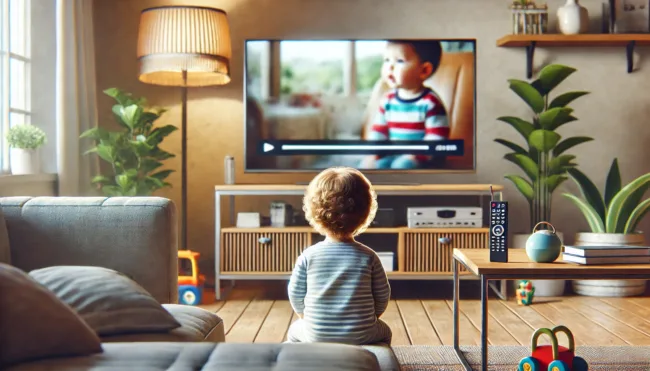Shocking Truths About How TV Can Harm Your Child’s Development!
In today’s digital age, television is an integral part of many households, offering a plethora of educational and entertainment content. However, while TV can be a valuable tool for learning and relaxation, excessive television viewing by children can have significant adverse effects on their development. This article explores the negative impacts of TV watching on kids and offers insights into how parents can mitigate these effects.
Adverse Effects of Watching TV on Kids

Discover the Hidden Dangers of TV Watching for Kids!
Impact on Cognitive Development:
– Reduced Learning Opportunities: A recent study revealed that keeping infants in front of the TV can significantly reduce their cognitive development. The study, conducted on infants aged 2-48 months, used lightweight recorders to capture all noises the infants heard over a 24-hour period. The data showed that infants exposed to TV heard 7% fewer words from adults compared to the control group. This reduction in verbal interaction can hinder the child’s language acquisition and overall cognitive growth.
– Critical Learning Period: The first two years of life are crucial for brain development. During this period, hearing and interacting with adults is essential for cognitive development. Continuous exposure to TV and other electronic media can interfere with this learning process, affecting the child’s ability to develop language and social skills.
Social and Behavioral Issues:
– Reduced Social Interaction: Excessive TV watching can limit children’s opportunities to engage in social activities. This can lead to poorer social skills and difficulties in forming relationships with peers.
– Aggressive Behavior: Some studies suggest that children who watch violent content on TV may exhibit more aggressive behavior. They may become desensitized to violence and more likely to act out what they see on screen.
Physical Health Concerns:
– Obesity Risk: Sedentary activities like watching TV are linked to increased risk of obesity in children. Kids who spend long hours in front of the TV are less likely to engage in physical activities, leading to weight gain and related health issues.
– Vision Problems: Prolonged screen time can strain children’s eyes, potentially leading to vision problems over time.
Impact on Academic Performance:
– Decreased Reading Habits: Time spent watching TV can detract from time spent reading or engaging in other educational activities. This can negatively impact a child’s academic performance and love for learning.
Parental Strategies to Mitigate Adverse Effects
Limit Screen Time:
– Set Boundaries: Establish clear rules about how much TV your child can watch each day. The American Academy of Pediatrics recommends no more than one hour of screen time per day for children aged 2 to 5 years.
– Scheduled Viewing: Designate specific times for watching TV, preferably after homework and physical activities.
Encourage Alternative Activities:
– Promote Active Play: Encourage your child to participate in outdoor play and sports. Physical activities are crucial for their physical and mental health.
– Foster Reading Habits: Create a reading-friendly environment at home. Encourage your child to read books, and read together as a family.
Be Selective with Content:
– Educational Programs: Choose TV programs that are educational and age-appropriate. Many programs are designed to promote learning and positive behavior.
– Co-Viewing: Watch TV with your child and discuss the content. This can help them understand what they are watching and foster critical thinking.
Create a TV-Free Environment:
– Dedicated Spaces: Designate certain areas of the house, such as the dining room and bedrooms, as TV-free zones. This encourages family interaction and healthy habits.
While television can be a useful tool for learning and entertainment, it’s essential to monitor and regulate its use among children. By understanding the adverse effects and implementing effective strategies, parents can ensure their children develop healthily and happily.
Discover more from Business-News-Today.com
Subscribe to get the latest posts sent to your email.

